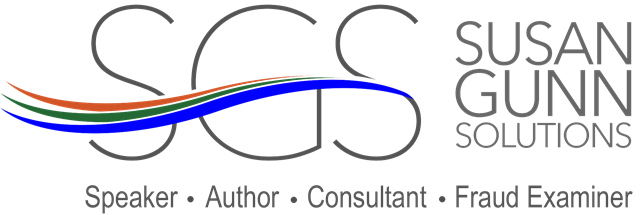We live in a world where advice is just a scroll away. TikTok tax hacks. Facebook “experts.” Instagram reels promising wealth or freedom in three easy steps. Even headlines in major news sources can be more sensational than substantive. The problem isn’t that information is scarce—it’s that there’s too much of it, and far too much of it tells us exactly what we want to hear.
I call it “tickle-the-ear” theology—a phrase I’ve used for years in my ethics teaching. It’s advice that feels good, affirms what we want to believe, but is hollow or dangerous when put into practice. And sadly, it’s not confined to religion. It has spread to finance, taxes, investing, and even how business owners manage their practices.
Viral Advice with Real Consequences
Take, for example, the IRS’s recent announcement that “viral tax hacks” circulating online led to $162 million in penalties. Everyday taxpayers, hoping to lower their bills or score quick refunds, followed advice that had no basis in law. The result wasn’t financial relief—it was financial ruin.
I’ll never forget a conference many years ago when I slipped into a session on tax strategies. The speaker stood before a packed ballroom and boldly declared that the IRS draws a line in the sand—a line you must not cross. But then he added, “What I do is put my toes right on that line and lean over as far as I can.”
My colleague and I were stunned. My only response was, “Yes, and that’s exactly why the French invented the guillotine—to lop those extended heads right off.”
The room laughed, but the absurdity of the statement has stuck with me all these years. Why? Because it reflects a dangerous mindset: pushing boundaries for applause, without considering the very real consequences for those listening and tempted to follow.
Consider also the Nevada man who pled guilty just this month to running a fraudulent “Special Tax Shelter Strategy.” For nearly a decade, he promised clients they could wipe away taxes or generate large refunds, using sham entities that didn’t conduct business or report real losses. The cost? More than $3.5 million in lost tax revenue, and clients now facing the fallout of fraudulent returns. (DOJ source)
Then there’s the Bucks County, Pennsylvania man sentenced to 11 years in prison for running Ponzi schemes and stealing over $6 million in pandemic relief funds. He promised investors security and returns, but instead bought luxury goods and laundered money through fake entities. (DOJ source)
Each of these cases had a common thread: people trusted the counsel they wanted to believe. Quick fixes. High returns. No effort required.
The Madoff Reminder
Of course, the most infamous modern example is Bernie Madoff. In my ethics courses, I often talk about him because his story is a chilling reminder that even the brightest, wealthiest, most financially savvy people can fall prey to deception when they suspend skepticism.
Madoff promised steady, above-market returns. Investors lined up, entrusting him with billions. Many lost everything. Some were so devastated they took their own lives. Even Madoff’s family could not withstand the wreckage: one son committed suicide, the other died young.
If you’ve never read No One Would Listen by Harry Markopolos, I recommend it. He spent years trying to blow the whistle on Madoff, only to be ignored. The title itself says it all—no one wanted to listen because what Madoff promised felt too good to question.
Dentistry Isn’t Immune
If you think this happens only on Wall Street or in high-stakes investing, think again. Dentistry is no exception. I’ve investigated embezzlement cases for nearly three decades, and I see the same pattern repeat itself:
-
A doctor owner who wants to believe everything is fine.
-
A long-time team member who says, “It’s all under control.”
-
A CPA who only looks at bank deposits and never asks for practice management reports.
-
A bookkeeper who receives reports straight from the embezzler without verifying them.
The result? Hundreds of thousands, even millions of dollars lost. Not because the doctor wasn’t intelligent, but because they trusted what they wanted to hear. That everything was fine. That nothing was askew. That someone else had it handled.
Why We Believe
Why does this happen so often? I think it comes down to human nature. We crave relief. We long for shortcuts. We want to believe there’s an easier way. And we live in a time where skepticism feels exhausting, where trust is marketed as virtue and questioning is framed as negativity.
But as I often tell clients: trust is not accountability.
The “Show Me” State Mindset
Missouri is called the “Show Me State,” and I think that mindset is exactly what we need now more than ever. Skepticism isn’t cynicism—it’s wisdom. It’s protection. It’s asking for documentation, insisting on verification, and refusing to believe that quick fixes or easy returns come without risk.
Here’s what that looks like in practice:
-
If an advisor promises to reduce your taxes dramatically, ask to see the legal basis and get a second opinion.
-
If a colleague tells you not to bother with certain reports, insist on reviewing them anyway.
-
If someone in your practice says “Don’t worry, I’ve got it covered,” then worry—and verify.
-
If a financial product, scheme, or hack feels too good to be true, assume it is until proven otherwise.
Closing Thought
The lure of bad counsel is real. It “tickles the ear” because it tells us exactly what we want to hear. But the cost of believing it can be devastating—whether it’s a tax penalty, a Ponzi loss, or an embezzled practice.
Be wise whom you seek counsel from. Ask the questions others don’t want to. Verify the numbers. Require the reports. Because in the end, it’s not what sounds good that protects you. It’s what’s true.

